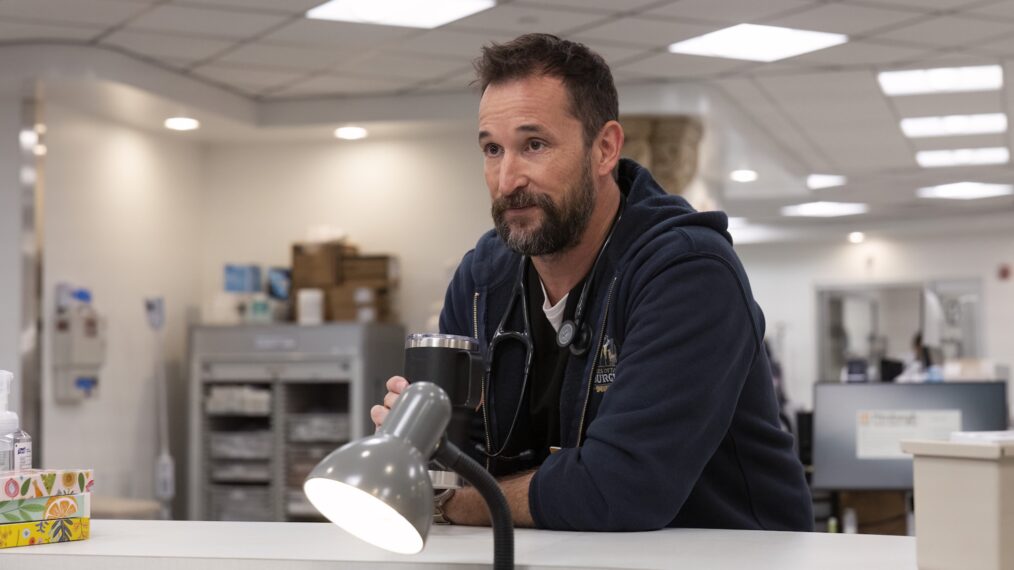A healthy workplace is everything. This much was underscored by COVID-19. As the pandemic revealed, if one person came down with the virus, the whole operation could be at risk, from a slowdown to a complete shutdown.
It emphasized that employers didn’t simply have to worry about the health of their business. Amid the variant surges and worker burnout, employers had to consider, too, the physical and mental health of their employees if their organization had a chance of weathering the virus.
While COVID-19 has taken a heavy toll on both physical and mental well-being, the workplace is in a much better position with regards to overall healthy environments. Still, the cooler months ahead mean more time spent indoors, where the risk of airborne viral transmission is higher.

DR. BRUCE FARBER: ‘We’re at a stalemate between us and the virus.’ Courtesy of Northwell Health
“We’re at a stalemate between us and the virus,” said Dr. Bruce Farber, chief of public health and epidemiology at Northwell Health. “The virus is not going away, but we’re living through it. The balance will tip one way or another.”
Dr. Sharon Nachman, an infectious disease specialist at Stony Brook Children’s Hospital, agreed.
“Fall and winter are going to test our patience,” she said.
And on that precipice, employers are now looking for ways to attract talent, and keep them safe. Towards that end, healthful perks and good science can go a long way.
For example, in navigating the pandemic, the Town of Babylon, with a staff of 400 full-time employees and 200 part-time employees, began to work with Radish Health, a New York-based telehealth platform that delivers primary care services to municipal governments, including town government in Smithtown and Brookhaven, as well as midsize businesses.
“I had to make sure the whole team is healthy to be able to” deliver town services, Babylon Town Supervisor Rich Schaffer told LIBN.
“During a [Hurricane] Sandy or other Mother Nature event, our people have to work around the clock overtime,” and are “wiped out and exhausted” in the aftermath, he said. And in the onset of COVID-19, Schaffer looked to support employees so that they could “put their best foot forward” as they “interfaced with the public” especially in the heat of a public health crisis.

20180409.02 Sharon Nachman Pediatrics
Radish, Schaffer said, helped the town develop a plan. That plan featured aggressive monitoring for people who were sick so that they could quickly find treatment. And it limited in-person meetings to healthy, screened team members who were unlikely to spread the virus.
Still, COVID-19 isn’t the only threat to people’s health, said Dr. Viral Patel, CEO of Radish. “You can’t forget the other things,” he said, pointing to heart disease, cancer and additional diseases.
As the virus receded, the town began to see long-term benefits in working with Radish. Now, the program provides each employee access to a care team with a doctor, dietician and therapist, along with support to help people find additional in-network resources if needed.
The town currently pays about $80,000 a year for the program. Shaffer said in July that he expected the program would help the town save on costs, and that employees are now more energized and more productive, requiring fewer overtime hours.
“It shows employees that we care,” Shaffer said of the program, adding that other sectors beside government would benefit by taking the same approach.
Recognizing that team members need support, for example, Northwell Health opened its Center for Traumatic Stress, Resilience and Recovery in 2021. The center offers grief counseling, coaching and additional services for employees and their families.
“Northwell is committed to supporting the comprehensive well-being of our team members, including helping them manage the stress generated by COVID-19 and other factors,” Maxine Carrington, senior vice president and chief human resources officer, said in a statement when the center opened.
In addition, the healthcare provider is investing in team members’ professional development as a way to retain employees in a competitive hiring environment.

Rob Labiento leads a fitness class for Town of Babylon employees. Photo by Judy Walker
Meanwhile, the Town of Babylon went on to enhance health and wellness, contracting Rob Labiento, a personal trainer who incorporates fitness and additional resources in nutrition and counseling,
Town officials say the combined approach has boosted employee health, reduced healthcare costs, increased productivity, and attracting and helping retain top talent.
Since the program began, Babylon Town Clerk Gerry Compitello said her staff of 15 has lost 100 pounds cumulatively, with some also having lowered their cholesterol and A1C levels, referring to a blood test that detects type 2 diabetes and prediabetes.
And with “the mental health counseling, more than half my staff is speaking to somebody,” she said, adding that “coming out of the pandemic” it’s helped keep stress levels down. Only one person called in sick in the last two months, “where it used to be a common occurrence,” she said.
Schaffer said the emphasis on health and wellness has changed the culture at work. Now, colleagues talk about scheduling mammograms and colonoscopies, and share healthy recipes. “It’s triggered a whole different conversation,” he said.
Town employees are also encouraged to take fitness classes two hours a week, whether it’s strength and conditioning, yoga, mindfulness, walks or another activity. Energized, employees “show more productivity,” Schaffer said.
Even without the extra benefits and perks, employers can protect the workplace by maintaining the protocols people took to practicing fervently in the pandemic.
“The things that protect against infection continue to work,” Nachman said, referring to basics such as washing hands, and staying home when feeling sick.
And vaccines are “really, really very good but never perfect,” she pointed out. “Remember good is not the opposite of perfect.”
Still, with headlines about new variants, monkeypox, flu and now polio, it’s easy to feel a mix of withered panic.
But, Nachman said, the “oh no! Chicken Little response is not a good use of our energy.” I
t’s better, she added, to consider how to “stop this infection from progressing.”
That’s why employers should strive “to be an educated consumer,” she added. Rather than “listening to the echo chamber on social media, look at good sources of information.”
Still, the cold months won’t be easy for employers to navigate, Farber warned,
“What determines what is reasonable and what is not reasonable depends on where we go in the fall,” he said. “Rates tend to rise when the weather gets cold.”
And that’s when, he said, employers may find “that they need to reinstitute mitigation policies.”
AGENN@LIBN.COM




















![‘Brilliant Minds’ Season 1 Finale Recap: [Spoiler] Is Alive ‘Brilliant Minds’ Season 1 Finale Recap: [Spoiler] Is Alive](https://tvline.com/wp-content/uploads/2025/01/brilliant-minds-oliver-father-alive-mandy-patinkin-season-1-finale-1.jpg?w=650)
![Mandy Patinkin as [Spoiler], What’s Next for Oliver and Josh in Season 2 (Exclusive) Mandy Patinkin as [Spoiler], What’s Next for Oliver and Josh in Season 2 (Exclusive)](https://www.tvinsider.com/wp-content/uploads/2025/01/brilliant-minds-113-oliver-mandy-patinkin-1014x570.jpg)
![Brilliant Minds Season 1 Finale Review: [Spoiler’s] Return Throws Oliver’s World Out of Control Brilliant Minds Season 1 Finale Review: [Spoiler’s] Return Throws Oliver’s World Out of Control](https://cdn.tvfanatic.com/uploads/2025/01/Rushing-to-Save-the-Apartment-Victims-Brilliant-Minds-Season-1-Episode-12.jpg)
























































